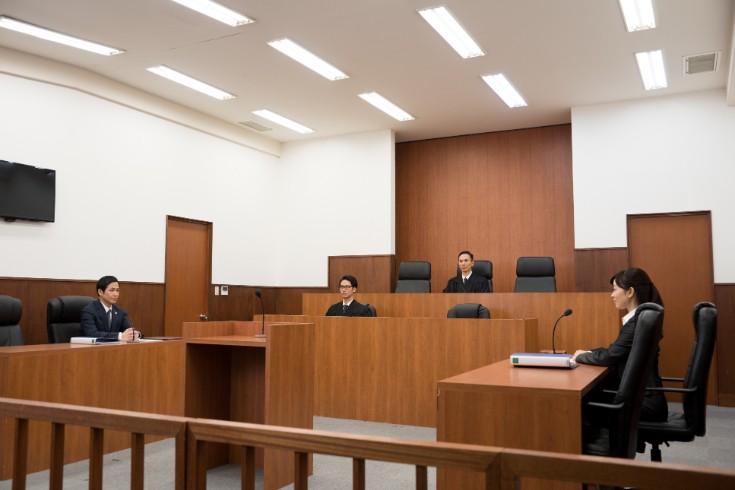Acquisition and Cancellation of Treasury Shares under Japanese Corporate Law

The concept of treasury stock under Japanese Corporate Law plays an extremely important role in corporate financial strategy and enhancing shareholder value. Treasury stock refers to shares that a corporation has issued and then acquired and held by the company itself. Under the former Japanese Commercial Code, the acquisition of treasury stock was generally prohibited due to the risk it posed to the company’s financial foundation. This was rooted in a conservative legal system design, strongly based on the principle of capital adequacy and maintenance, which aimed to prevent the easy outflow of capital paid in at the company’s establishment and to maintain the company’s financial foundation.
However, with the revision of the Commercial Code in 2001 and the enactment of the current Company Law (Law No. 86 of 2005), the acquisition and holding of treasury stock have been liberalized as a principle, becoming an important tool enabling flexible capital policies in modern corporate management. This legal reform suggests not only a mere technical change in law but also indicates the growing need for Japanese companies to pursue more flexible financial strategies in a global competitive environment and the increasing emphasis on the modern management goal of maximizing shareholder value. In Western countries, the acquisition of treasury stock has long been a common shareholder return measure and has been widely used for mergers and acquisitions (M&A) and employee incentives. The Japanese legal reform can be interpreted as an important step to align with these international corporate practices and enhance the competitiveness of Japanese companies. In other words, this reform is part of a deeper trend promoting the maturation of corporate governance and capital markets in the Japanese economy as a whole. This article provides a detailed explanation of the objectives, legal requirements, and procedures for the acquisition and cancellation of treasury stock as defined by Japanese Corporate Law.
The Purposes of Acquiring Treasury Shares Under Japanese Corporate Practices
Acquiring treasury shares serves a variety of strategic purposes for modern Japanese companies. Rather than being implemented for a single purpose, the acquisition often involves a complex interplay of multiple corporate strategies.
Firstly, the acquisition of treasury shares is widely used as part of returning profits to shareholders. By repurchasing its own shares from the market, a company can reduce the total number of issued shares, potentially improving earnings per share (EPS) and return on equity (ROE), which may lead to an increase in share price. This is considered a return of economic benefits to shareholders, akin to the payment of dividends. With the Tokyo Stock Exchange encouraging management that is conscious of capital costs and share prices, acquiring treasury shares is positioned as an active means to enhance market valuation, such as improving the price-to-book ratio (PBR).
Secondly, it functions as a defense against hostile takeovers. By holding treasury shares, a company can reduce the number of shares in circulation, thereby lowering the risk of hostile takeovers. Increasing the ratio of treasury shares raises the funds required for an acquirer to obtain a majority stake, thus heightening the barrier to acquisition.
Thirdly, it is used for business succession and adjusting shareholder composition. In small and medium-sized enterprises, acquiring treasury shares can be a strategy for business succession. For example, by purchasing and retiring shares from heirs other than the successor, it is possible to increase the successor’s shareholding ratio and concentrate management rights. Additionally, in private companies, when shareholders wish to liquidate their shares in the absence of a market, the company can meet this need by purchasing the shares. This can prevent the dispersion of shares and contribute to the stabilization of management.
Fourthly, it can be applied to employee incentives and M&A strategies. Acquired treasury shares can be granted to executives and employees as stock options or share-based compensation, enhancing their motivation and contributing to the increase in corporate value. They can also be used as consideration in M&A transactions involving share exchanges, allowing for organizational restructuring while conserving funds.
In this way, the acquisition of treasury shares often involves a complex interplay of multiple corporate strategies such as shareholder returns, acquisition defense, business succession, M&A, and employee incentives. For instance, acquiring treasury shares during a period of low share prices can support the share price while simultaneously enhancing shareholder returns by improving earnings per share and reducing the risk of takeover by decreasing the number of shares in circulation. This multifaceted nature indicates that the acquisition of treasury shares is not merely an accounting procedure or a financial management issue but an important management decision deeply integrated with long-term growth strategies, capital policies, corporate governance, and business succession planning. Especially for listed companies, with the Tokyo Stock Exchange promoting management conscious of capital costs and share prices, acquiring treasury shares is positioned as an active means to enhance market valuation, such as PBR improvement. For private companies, the strategic value is manifested in a different context, contributing to the practical and urgent resolution of issues such as the monetization of illiquid shares and smooth business succession. This suggests that the acquisition of treasury shares is a highly flexible tool, with its methods of use varying greatly depending on the company’s situation and strategic direction.
Legal Requirements and Procedures for the Acquisition of Treasury Shares Under Japanese Corporate Law
The acquisition of treasury shares has a significant impact on a company’s assets, and therefore, it is subject to strict requirements and procedures as stipulated by the Japanese Companies Act.
Principles of Capital Source Regulation and the Distributable Amount
When a joint-stock company acquires its own shares for consideration based on an agreement with shareholders, the total amount of consideration must not exceed the ‘distributable amount’ as of the effective date of the transaction, as stipulated under Japanese Corporate Law (Article 461, Paragraph 1). This ‘capital source regulation’ is a crucial provision designed to prevent the undue outflow of corporate assets and protect creditors from harm. The acquisition of treasury shares involves the company repurchasing its shares from shareholders, which equates to a refund of capital to them, thus resulting in the outflow of corporate assets. Without restrictions on this outflow of funds, a company could excessively acquire its own shares, potentially weakening its financial foundation and increasing the risk that creditors would be unable to recover their claims.
The capital source regulation set forth in Article 461 of the Corporate Law is an extremely important legal requirement established to avoid this risk. By introducing the concept of the ‘distributable amount’ and setting a limit on the funds that can be returned to shareholders, it protects the interests of creditors and ensures the financial soundness of the company. The distributable amount is calculated based on the amount of surplus funds and varies according to the company’s financial situation. This reflects the continued adaptation of the ‘principle of capital maintenance’ from the era of the former Commercial Code, even in the modern era where the acquisition of treasury shares has been liberalized. Companies are obligated to precisely calculate this distributable amount when planning the acquisition of their own shares and to adhere to it. Failure to comply can result in serious legal risks, such as the directors’ liability and the invalidity of the acquisition act. This regulation serves as a legal and practical foundation for companies to balance shareholder returns with creditor protection.
Acquisition of Treasury Stock by Agreement with Shareholders (Including Market Transactions)
The principal procedures for acquiring treasury stock for consideration are as follows:
Resolution of the General Meeting of Shareholders (Article 156 of the Japanese Companies Act)
In order for a company to acquire treasury stock for consideration by agreement with shareholders, it must first establish the following matters by an ordinary resolution at the general meeting of shareholders, as stipulated in Article 156, Paragraph 1 of the Japanese Companies Act:
- The number of shares to be acquired (for companies issuing class shares, the type of shares and the number for each type)
- The content and total amount of money or other consideration to be provided in exchange for the shares
- The period during which the shares can be acquired (which cannot exceed one year)
This resolution sets a framework for the company to determine ‘how many shares, at what price, and within what period’ it will repurchase, and is positioned as part of the return of profits to shareholders, alongside dividend distribution.
Board of Directors’ Resolution (Article 157 of the Japanese Companies Act)
Within the limits set by the resolution of the general meeting of shareholders, when actually acquiring treasury stock, the board of directors (in the case of companies with a board of directors) must determine the following matters by resolution each time, as required by Article 157, Paragraphs 1 and 2 of the Japanese Companies Act:
- The number of shares to be acquired
- The content and amount or value of the money or other consideration to be provided in exchange for one share, or the method for calculating these
- The total amount of money or other consideration to be provided in exchange for the shares
- The deadline for applications for the transfer of shares
By this resolution of the board of directors, the specific conditions for acquisition are decided, and the acquisition is executed.
Notification to Shareholders & Public Notice and Application for Transfer (Articles 158 and 159 of the Japanese Companies Act)
After the board of directors has decided on the matters related to the acquisition, the company will notify or publicly announce these matters to the shareholders (Article 158 of the Japanese Companies Act). Shareholders who receive the notice will apply for the transfer of shares by the application deadline set by the company (Article 159, Paragraph 1 of the Japanese Companies Act). If the total number of applications exceeds the total number of shares to be acquired, the shares will be purchased on a pro-rata basis.
Market Transactions & Public Tender Offers
When a listed company acquires its own shares, it may do so through market purchases on the Tokyo Stock Exchange, off-market trading systems such as ToSTNeT-2 and ToSTNeT-3, or public tender offers (TOB) to purchase shares from an unspecified large number of shareholders. Public tender offers have a significant impact on the market, hence they require information disclosure and the assurance of equal selling opportunities under the Financial Instruments and Exchange Act.
Acquisition from Specific Shareholders
When a company repurchases its own shares exclusively from specific shareholders, more stringent procedures are required to maintain fairness among shareholders.
Special Resolution of the Shareholders’ Meeting (Article 160 of the Japanese Companies Act)
To acquire treasury shares from specific shareholders, a special resolution at the shareholders’ meeting must define the following items as stipulated by Article 160, Paragraph 1 of the Japanese Companies Act:
- The number of shares to be acquired
- The content and total amount of money or other consideration to be provided in exchange for the shares
- The period during which the shares can be acquired (which cannot exceed one year)
- The fact that the treasury shares are being acquired from specific shareholders and the name or designation of those specific shareholders
This special resolution requires the attendance of more than half of the shareholders with voting rights and the approval of at least two-thirds of the voting rights of the attending shareholders. The specific shareholders from whom the shares are being acquired cannot exercise their voting rights in this resolution (Article 160, Paragraph 4 of the Japanese Companies Act).
Seller’s Additional Claim Right
In cases where shares are acquired from specific shareholders, a “Seller’s Additional Claim Right” is recognized to prevent other shareholders from being disadvantaged (Article 160, Paragraphs 2 and 3 of the Japanese Companies Act). This right allows other shareholders to request within a certain period to be added as sellers when the company notifies that it is acquiring treasury shares from specific shareholders. If such a request is made, the company must amend the proposal accordingly.
However, this provision for the Seller’s Additional Claim Right does not apply under certain circumstances, such as when shares with a market price are acquired for an amount not exceeding that market price (Article 161 of the Japanese Companies Act). This is because there is an opportunity to sell on the market, and the disadvantage to other shareholders is deemed small.
The Japanese Companies Act imposes a higher requirement of a “special resolution of the shareholders’ meeting” for the acquisition of treasury shares from specific shareholders to protect the “principle of shareholder equality,” which is highly valued under Japanese corporate law. If it were easy for a company to repurchase shares only from specific shareholders, there could be unfair transactions to other shareholders, such as management buying out shares from opposing shareholders at a high price to strengthen their control. To address this concern, Article 160 of the Companies Act requires a special resolution for acquisitions from specific shareholders and establishes the “Seller’s Additional Claim Right” system. This aims to prevent specific shareholders from being favored and to provide other shareholders with a fair opportunity to sell. The provision that specific shareholders cannot exercise their voting rights (Article 160, Paragraph 4 of the Japanese Companies Act) is also an important measure to ensure fairness. These strict procedures are not merely formal requirements but reflect the underlying philosophy of shareholder protection in the Companies Act and the commitment to transparency and fairness in corporate governance. For foreign investors, it is particularly important to understand how Japanese corporate law emphasizes fairness among shareholders in specific transactions.
The Purpose of Treasury Stock Cancellation Under Japanese Corporate Law
Treasury stock cancellation refers to the act of a company extinguishing its own shares to reduce the total number of issued shares. It presupposes the acquisition of treasury stock.
The cancellation of treasury stock is carried out for the following purposes:
Firstly, it aims at the normalization of the total number of issued shares and its impact on stock prices. The cancellation reduces the total number of shares, thereby potentially increasing the value per share and making it easier for stock prices to rise. This effect is due to the reduction in the supply of shares available in the market, which increases the scarcity of the stock. It also serves to adjust an excessive number of issued shares to an appropriate level and to streamline shareholder management.
Secondly, it enhances shareholder value and serves as a defense against hostile takeovers. By canceling treasury stock, the earnings per share (EPS) are improved, strengthening the return of profits to shareholders. Additionally, by reducing the number of shares in circulation, it raises the barrier for hostile acquirers to obtain shares, thus functioning as a takeover defense measure.
Thirdly, it concentrates management rights in business succession. Similar to the acquisition of treasury stock, in the context of business succession, canceling shares acquired from heirs other than the successor can increase the shareholding ratio of the successor, thereby concentrating management rights.
The acquisition and cancellation of treasury stock are independent acts, yet they are closely linked in corporate strategy. Once acquired, treasury stock can be held as “treasury shares,” but whether to cancel them depends on the specific objectives of the company. Holding them as treasury shares offers flexibility for future use as consideration in M&A transactions or as stock compensation for employees. On the other hand, choosing to cancel them permanently removes the shares from the market, ensuring a permanent reduction in the total number of issued shares and a definite increase in the value per share, while also strengthening the defense against hostile takeovers. The choice between holding and canceling is based on a variety of management decisions, including short-term funding needs, shareholder return policies, long-term capital strategies, and M&A and business succession plans. For example, if there is a high possibility of future M&A, the company may choose to hold the shares as treasury stock, whereas if the priority is to boost stock prices or stabilize management rights, cancellation may be the strategic choice. This interplay demonstrates the depth of strategic flexibility that the treasury stock system offers to companies.
Legal Requirements and Procedures for Treasury Stock Cancellation Under Japanese Corporate Law
The procedure for cancelling treasury stock is simplified compared to its acquisition.
Cancellation by Board of Directors Resolution (Article 178 of the Japanese Companies Act)
A joint-stock company can cancel its treasury stock. In this case, the company must specify the number of treasury shares to be cancelled (for companies with class shares, the type and number of each class) as stipulated in Article 178, Paragraph 1 of the Japanese Companies Act. For companies with a board of directors, the decision to cancel must be made by a resolution of the board of directors, as per Article 178, Paragraph 2 of the Japanese Companies Act.
While the “acquisition” of treasury stock requires a resolution of the shareholders’ meeting (and in some cases a special resolution), the “cancellation” can be done solely by a resolution of the board of directors. This is due to the legal evaluation of treasury stock under Japanese corporate law. The acquisition of treasury stock is an act of returning assets to shareholders, which, as indicated by the capital source regulations, can directly affect the interests of creditors and other shareholders. Therefore, the more stringent approval of the shareholders’ meeting is required. On the other hand, the cancellation of treasury stock is an act of extinguishing the shares already held by the company, which reduces the total number of issued shares but does not decrease the company’s net assets (there are accounting treatments, but it is different from capital reduction that involves the reduction of capital stock or capital reserve). Often, this can benefit existing shareholders by increasing the value per share, and thus, the Japanese Companies Act evaluates this as an act that does not cause “significant disadvantage” to existing shareholders and simplifies the procedure by entrusting it to the board of directors’ resolution. This simplification is a result of the law providing flexibility, supporting the strategic significance of treasury stock in modern corporate management.
Registration Procedures After Cancellation
When the cancellation of treasury stock results in a decrease in the total number of issued shares, it is necessary to register this change. This change registration must be completed within two weeks from the effective date. For companies that issue stock certificates, the effective date is the day the stock certificates are destroyed and the entries in the shareholders’ register are erased.
Practical Considerations for Foreign Investors Under Japanese Corporate Law
When foreign investors engage in transactions related to the acquisition or cancellation of treasury shares under Japanese Corporate Law, there are specific considerations unique to the Japanese legal system.
Application of the Foreign Exchange and Foreign Trade Act (FEFTA)
Direct investments by foreign investors into Japanese companies may fall under “inward direct investments” and be subject to the regulations of the Foreign Exchange and Foreign Trade Act (FEFTA). In particular, investments in Japanese companies operating in ‘designated business sectors’ related to national security, such as defense, telecommunications, and energy, or acquisitions of shares exceeding a certain percentage of voting rights (for example, more than 10%) require a “prior notification” to relevant ministries such as the Ministry of Economy, Trade and Industry or the Ministry of Finance before the investment is made, and a review (usually 30 days) may be necessary. Failure to submit a prior notification or submitting a false notification before making an investment can result in penalties, so careful attention is required. There is also a system that exempts investors from prior notification if they comply with certain criteria, such as non-involvement in management, but compliance with these criteria is monitored.
Tax Implications
The acquisition of treasury shares has tax implications for the selling shareholders. When a company acquires its own shares and provides consideration to shareholders, part of the payment may be taxed as “deemed dividends.” This is because the payment is considered to consist of a repayment of the share capital and a repayment of profits. In particular, for non-resident foreign shareholders or foreign corporations, a withholding tax of 20.42% is generally imposed. However, if there is a tax treaty between Japan and the country of residence, the withholding tax may be exempted or reduced according to the provisions of the treaty. Additionally, for U.S. public companies conducting share buybacks, a system has been introduced that imposes a 1% excise tax on certain share buybacks from January 1, 2023, which may also apply to Japanese public companies that own U.S. subsidiaries, so confirmation with international tax experts is recommended.
The Importance of Expert Support Under Japanese Law
Japanese Corporate Law prescribes detailed and strict procedures for the acquisition and cancellation of treasury shares. While the procedures for Japanese companies to acquire their own shares are clearly defined under Japanese Corporate Law, when foreign investors are involved in these transactions, regulations spanning multiple legal domains, such as FEFTA and international taxation, are applied in a layered manner. For example, when a foreign investor acquires shares of a Japanese company in a designated industry, in addition to the procedures under Japanese Corporate Law for the acquisition of treasury shares, an obligation for prior notification based on FEFTA arises, which may affect the timeline of the transaction. Furthermore, if the consideration for the sale of shares is recognized as “deemed dividends,” the tax treatment becomes complex depending on the selling shareholder’s country of residence and the existence of a tax treaty.
Such layered legal and tax risks can lead to unexpected legal liabilities, additional costs, or even the termination of transactions for foreign investors. Therefore, specialized knowledge in Japanese legal and tax matters is essential to address investment regulations under FEFTA, industry-specific licensing systems, and complex tax treatments.
Summary
The acquisition and cancellation of treasury shares under Japanese Corporate Law are essential elements in the capital policy of companies, supporting a variety of management strategies such as shareholder returns, defense against hostile takeovers, business succession, and mergers and acquisitions (M&A). The transition from the principle of prohibition under the old Commercial Code to the principle of liberalization in modern Japanese Corporate Law demonstrates the evolution of the legal system, allowing Japanese companies to develop more flexible and dynamic capital strategies. The acquisition of treasury shares involves complex procedures, including strict funding regulations, shareholder meeting resolutions, and in the case of acquisitions from specific shareholders, special resolutions and additional claim rights to protect the principle of shareholder equality. On the other hand, the cancellation of treasury shares can be done simply by a board of directors’ resolution, and the procedure is streamlined.
When foreign investors are involved in these transactions, they must be particularly cautious as regulations across multiple legal domains apply, including Japanese Corporate Law and the Foreign Exchange and Foreign Trade Act (FEFTA), as well as complex tax implications. To smoothly navigate these complex legal and tax challenges, support from experts well-versed in Japanese legal systems, business practices, and international taxation is indispensable.
Monolith Law Office has a wealth of experience in legal services related to shares and has supported a diverse range of domestic and international companies and investors. Our firm includes several attorneys who are native English speakers with foreign legal qualifications, enabling us to provide high-quality legal services in both Japanese and English, based on deep expertise and practical experience in Japanese Corporate Law.
Category: General Corporate





















